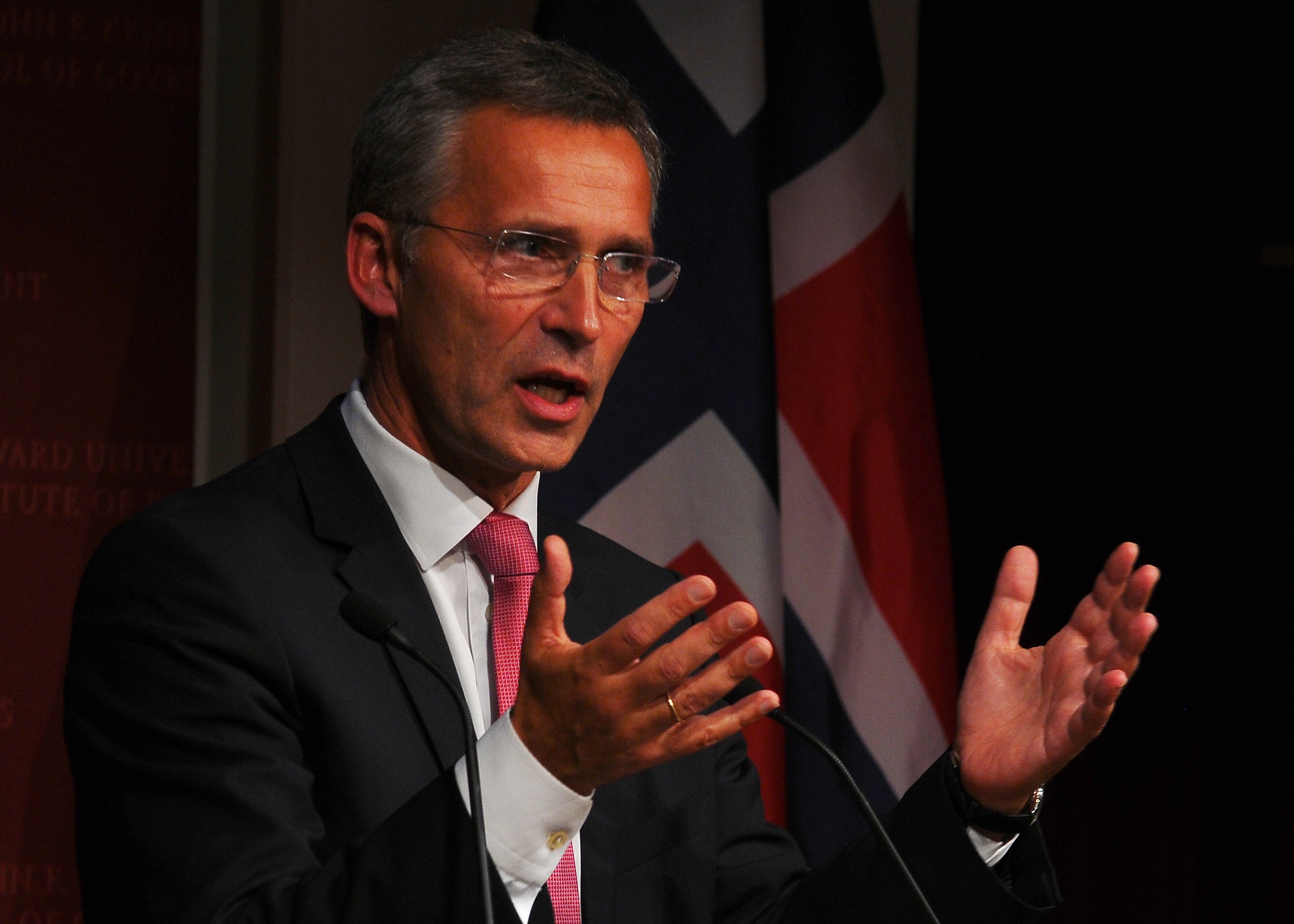
News
When Professors Speak Out, Some Students Stay Quiet. Can Harvard Keep Everyone Talking?

News
Allston Residents, Elected Officials Ask for More Benefits from Harvard’s 10-Year Plan

News
Nobel Laureate Claudia Goldin Warns of Federal Data Misuse at IOP Forum

News
Woman Rescued from Freezing Charles River, Transported to Hospital with Serious Injuries

News
Harvard Researchers Develop New Technology to Map Neural Connections
Norwegian Prime Minister Outlines Economic Strategy at IOP

Jens Stoltenberg, the current Prime Minister of Norway, laid out his strategy for immunizing his country against the “Dutch disease” during a speech at the John F. Kennedy Jr. Forum Wednesday night.
“Other countries in Europe spend money they don’t have,” said Stoltenberg, who will resign Oct. 14 after having been defeated in the most recent election. “Norway doesn’t spend the money we have.”
During his speech, Stoltenberg outlined his three-part fight against the “Dutch disease,” an economic phenomenon that refers to an economy overheating from dependence on natural resources: keeping national spending separate from national earnings, creating jobs, and supporting the private sector.
According to Stoltenberg, to stop the economy from overheating, the Norwegian government has set up a fund for the country’s oil wealth. The fund is invested in roughly 7,400 companies worldwide. The Norwegian government draws all its oil spending from the financial gains the fund generates.
Stoltenberg, who previously served as the country’s Minister of Finance and has been Prime Minister since 2005, acknowledged that this strategy has faced challenges over time.
“If you look at 2008...that was a bad year,” Stoltenberg said. He noted that at the time of the financial crisis, the country’s funds were invested in companies like “Fannie Mae and something Mac” and Lehman Brothers, the financial firm that famously went bankrupt at the onset of the crisis.
The second part of Norway’s strategy focuses on employment rates, which Stoltenberg proudly noted are among the highest in the world and the most equal between men and women. Norway has adopted unique labor policies to encourage its citizens to find jobs, including requiring workplaces to guarantee one year of parental leave for women and 14 weeks for men.
“Much more important than oil and gas is that Norwegians are going to work every morning,” Stoltenberg said.
The final part of Norway’s approach to keeping “Dutch disease” at bay is its focus on maintaining a robust private sector aside from the oil economy. Under this model, the public and private sectors work together to maximize average personal income.
Although Stoltenberg said this three-part approach has been especially successful in recent years, he cautioned that this formula cannot necessarily be replicated elsewhere.
“Countries can’t copy each other,” Stoltenberg said. “They can inspire each other and learn from each other.”
Members of the audience praised Stoltenberg’s speech and approach to leading a country.
“It was really good to see a leader of a state focused on policy, not just politics,” said Max W. Liebeskind ’17.
Want to keep up with breaking news? Subscribe to our email newsletter.
